Disclosure: This article contains affiliate links. We may earn a commission from purchases at no extra cost to you, which helps our travel content.
G'day, fellow food adventurers! If you'd told me a decade ago that I'd be writing about the culinary wonders of Western Kenya between interior design projects and wildlife photography expeditions, I might've laughed. But here I am, fresh off a week-long food safari in Kisumu, with a belly full of memories and a camera roll bursting with mouthwatering shots. Kisumu sits pretty on the shores of Lake Victoria, Africa's largest lake, and while most travelers buzz through on their way to more famous safari destinations, I'm here to tell you that skipping this lakeside gem is a proper rookie mistake. The local Luo cuisine blends freshwater delights with hearty staples in ways that'll have your taste buds doing a happy dance. What makes Kisumu special isn't fancy restaurants with white tablecloths—it's the authentic, budget-friendly food experiences that connect you directly with the culture and people. So grab your appetite and a sense of adventure as I walk you through my week of culinary discoveries in this underrated Kenyan foodie paradise.
Lakeside Fish Feasts: From Net to Plate
Let me start with what brought me to Kisumu in the first place—the legendary fish. Lake Victoria isn't just a pretty blue blob on the map; it's the beating heart of Kisumu's food culture. My first morning in town, I dragged myself out of bed at an ungodly hour (worth every yawn) to visit Dunga Beach Fish Market as the fishing boats returned with their overnight catch.
The scene was electric—dozens of wooden boats sliding onto shore, fishermen hauling nets glistening with tilapia and Nile perch, and market women negotiating with the energy of Wall Street traders. If you want the authentic experience, arrive before 7 AM when the action peaks.
The undisputed star of Kisumu's cuisine is ngege (Nile tilapia), usually served whole and fresh as the morning dew. For the best lakeside dining experience, I skipped the tourist spots and followed locals to Lwang'ni Beach, a stretch of rustic eateries where simplicity reigns supreme. You literally point to your fish, they weigh it, and 30 minutes later it arrives grilled to perfection over an open fire, typically served with ugali (a dense maize porridge) and sukuma wiki (collard greens).
At Tilapia Beach Resort, I discovered what might be the most perfectly prepared fish of my life. The secret? They score the fish before grilling, allowing the smoky flavors to penetrate deeply while keeping the flesh moist. I tried to photograph the process but was too mesmerized by the technique to remember I had my mirrorless camera hanging around my neck.
Don't miss trying fulu (small sardine-like fish) if they're in season. These tiny flavor bombs are typically fried whole until crispy and eaten like chips—perfect with a cold Tusker beer as the sun sets over the lake. Fair dinkum, I became so obsessed with these little blighters that I bought extra to snack on throughout the day.
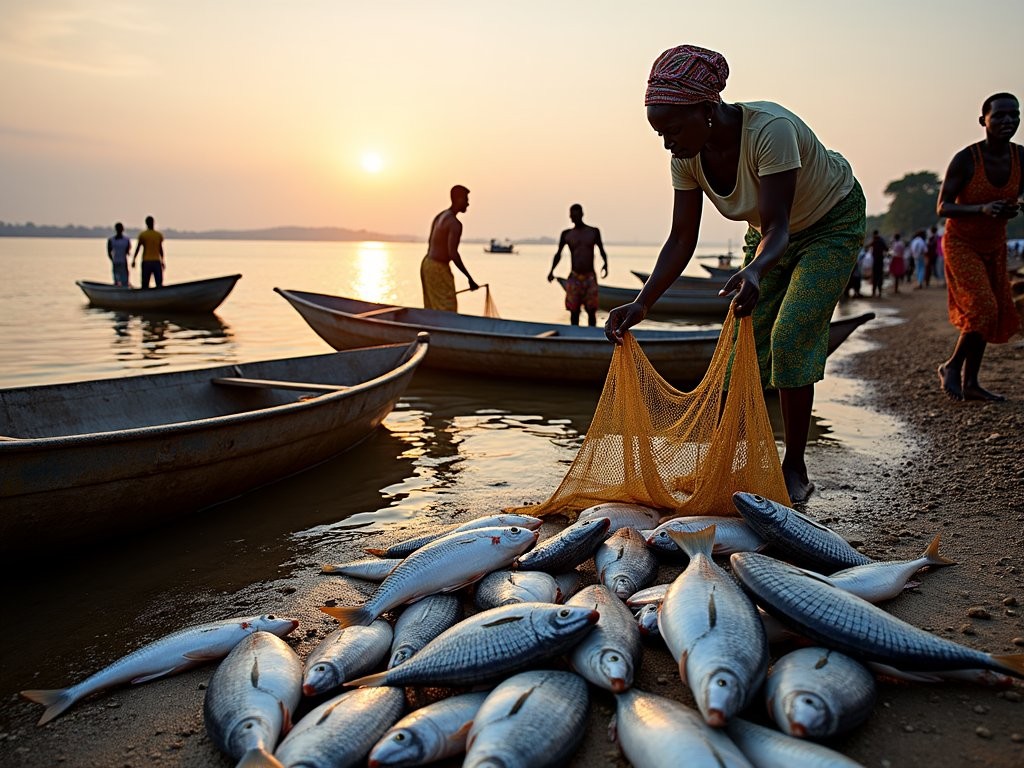
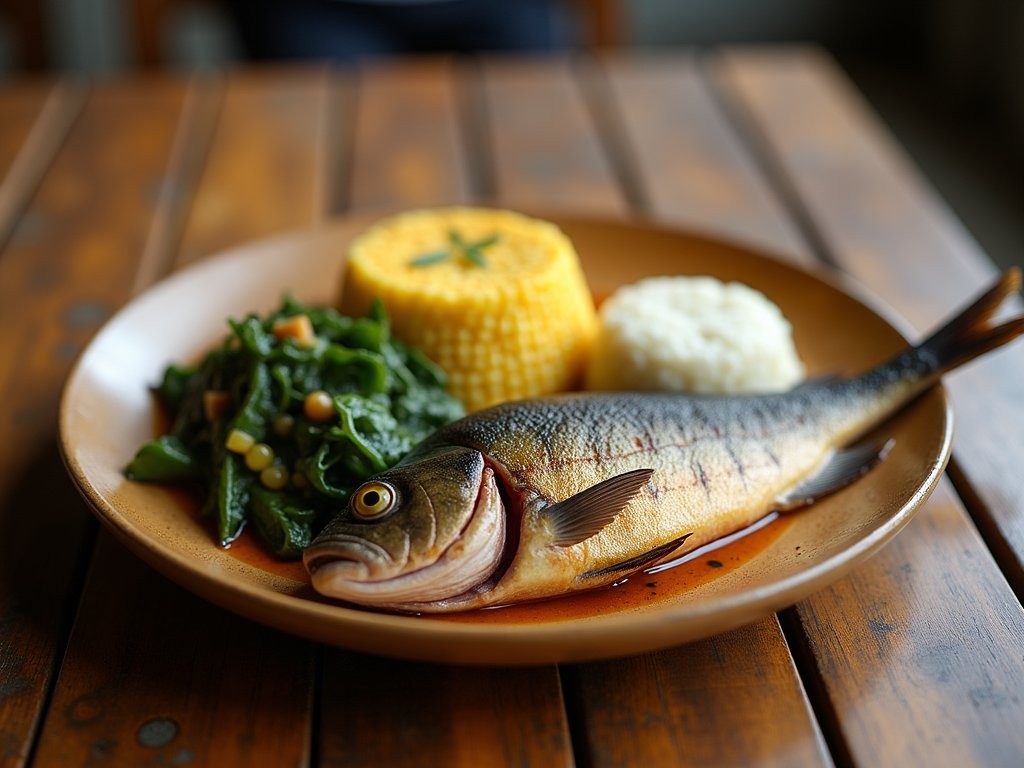
💡 Pro Tips
- Visit Dunga Beach Fish Market before 7 AM to see the morning catch arrive
- At Lwang'ni Beach eateries, negotiate the price of your fish before they cook it
- Ask for your fish 'dry fried' if you prefer less oil in your preparation
- Pair your fish with a side of 'kachumbari' (fresh tomato and onion salad) for a refreshing contrast
Market Adventures: Kibuye's Culinary Treasures
If you want to understand a culture, visit their markets. That's been my travel philosophy since my backpacking days, and Kisumu's Kibuye Market didn't disappoint. This sprawling weekend market is sensory overload in the best possible way—a maze of stalls selling everything from handwoven baskets to second-hand clothes. But I was there for the food section, where local produce creates a patchwork of colors that would make any interior designer swoon.
Kibuye Market isn't just about shopping; it's where you'll find some of Kisumu's most authentic street food. I discovered mandazi (triangular African donuts) that were still warm from the fryer, served by a woman who'd been making them the same way for 40 years. Slightly sweet and perfectly fluffy, they cost pennies but delivered pure joy with each bite.
The fruit selection at Kibuye deserves special mention. Beyond the expected bananas and mangoes, I encountered fruits I'd never seen before. Tree tomatoes (tamarillo) have a tangy-sweet flavor that's brilliant in fresh juices. Custard apples with their creamy white flesh became my daily breakfast. And don't get me started on the passion fruits—nothing like the sad specimens we get back home in the States.
One of my favorite discoveries was a small stall specializing in kunde, a local dish of black-eyed peas stewed in coconut milk with spices. The vendor laughed at my pronunciation but appreciated my enthusiasm, generously adding an extra spoonful to my serving.
Navigating Kibuye can be overwhelming, so I used my travel backpack to keep essentials secure while freeing my hands for sampling and photography. The compact size was perfect for carrying market purchases while not screaming 'tourist' too loudly.
If you're concerned about food safety, stick to cooked foods and fruits you can peel yourself. I always carry a small pocket knife for impromptu fruit picnics. The carbon steel blade keeps its edge well and is perfect for slicing through everything from mangoes to roasted corn.
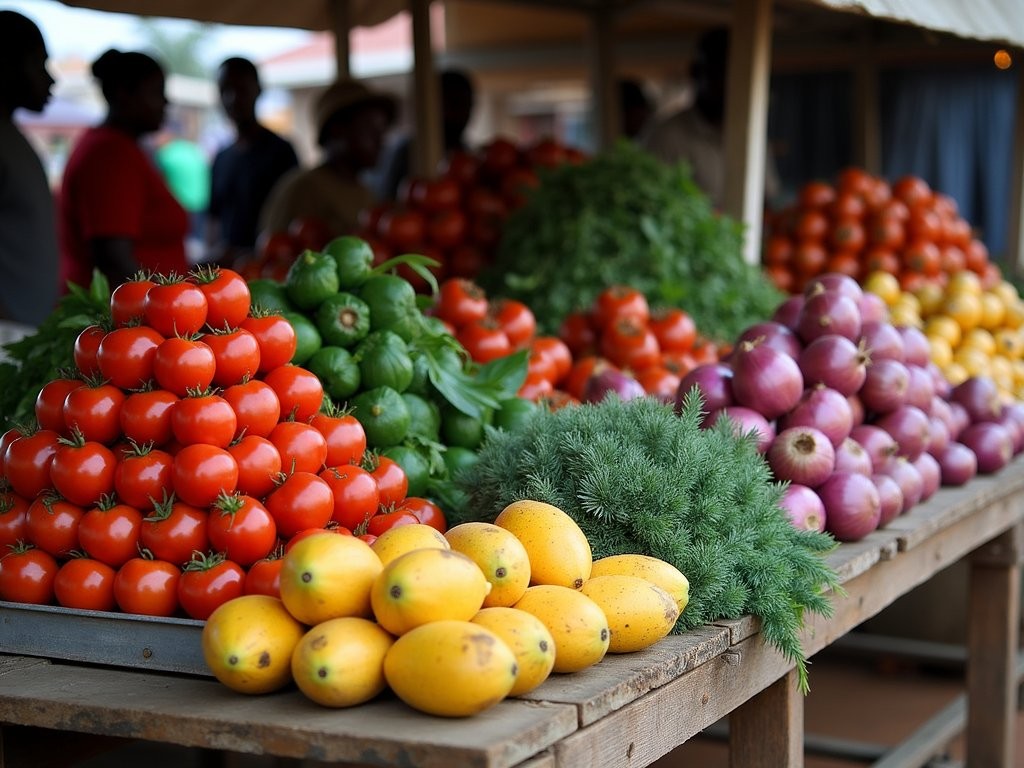
💡 Pro Tips
- Visit Kibuye Market on Sundays when it's at its bustling best
- Bring small denominations of Kenyan shillings for easier transactions
- Try 'mkate wa sinia' (Swahili pancakes) if you spot them—they're delicious with honey
- Look for vendors with queues of locals—that's where the best food is
Home-Cooked Traditions: Luo Cuisine Unveiled
My most memorable meals in Kisumu weren't found in restaurants but in homes, where traditional Luo cooking practices have been passed down through generations. Through a local connection (cheers to Joseph from my guesthouse!), I was invited to spend an afternoon learning to cook with his grandmother in their family compound just outside the city.
The heart of Luo cuisine is simplicity with deep flavor—dishes that make the most of local ingredients without fancy techniques. Our cooking session began with grinding maize for kuon (the local name for ugali) using a traditional stone grinder. My pathetic attempts had the entire family in stitches, but I eventually produced something resembling flour while working up a proper sweat.
The cornerstone of many meals is dek (stew), which can feature anything from fish to chicken to indigenous vegetables. What fascinated me was how different these dishes taste when prepared traditionally versus in restaurants. The smoke from the three-stone fire added complexity that no modern kitchen could replicate.
One dish I fell head over heels for was aliya, a traditional Luo delicacy of dried beef cooked with ghee and spices. It's rich, intensely savory, and absolutely worth seeking out. Another standout was omena (small sardine-like fish) dried and then stewed with tomatoes and onions—an acquired taste that I quickly acquired!
The most surprising aspect of Luo cuisine is the importance of vegetables. Osuga (African nightshade), apoth (cowpea leaves), and dek (spider plant leaves) are cooked in ways that preserve their nutrients and flavor. These indigenous greens are increasingly recognized for their nutritional value, but locals have known their worth for centuries.
After my cooking adventure, I realized my travel journal was becoming more of a recipe book than a travel diary. I've been scribbling down cooking techniques and flavor combinations that I'm dead keen to try back home—though I suspect my apartment building might object to me setting up a three-stone fire on my balcony in Aurora.
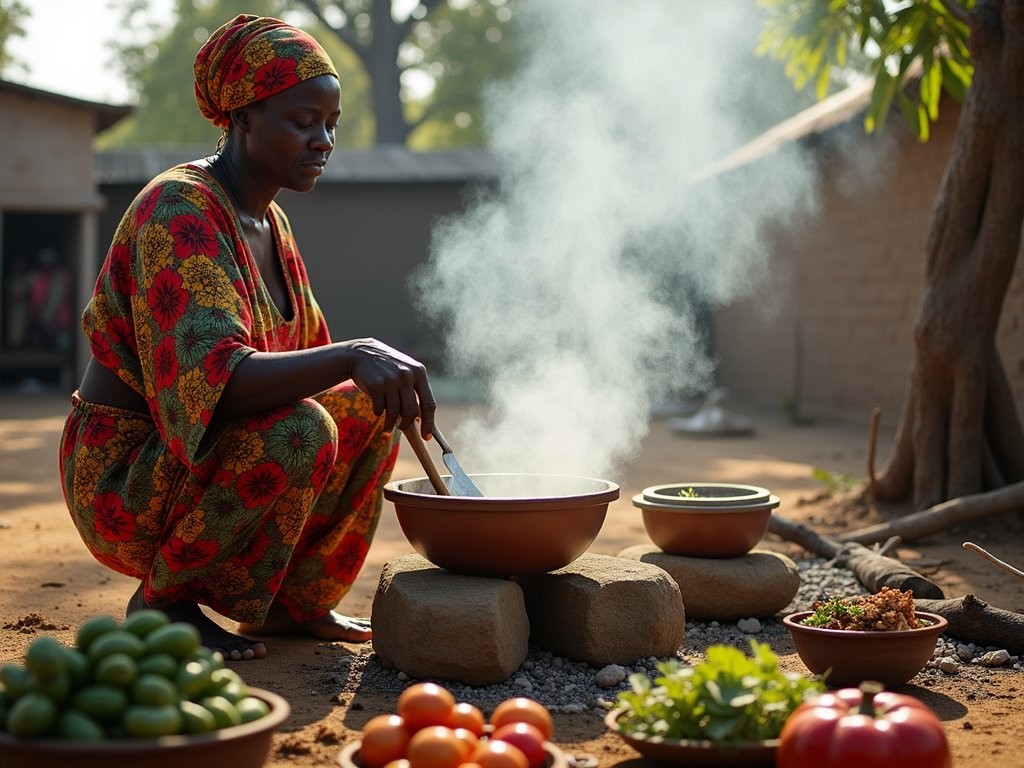
💡 Pro Tips
- Ask your accommodation if they can connect you with a local cooking experience
- Learn the phrase 'asante kwa chakula' (thank you for the food) to show appreciation
- Try 'nyuka' (dried fish) if offered—it's a traditional preservation method with unique flavor
- Be open to eating with your hands when invited to a home meal—it's part of the experience
Urban Flavors: Kisumu's Evolving Food Scene
While traditional foods form Kisumu's culinary backbone, the city's food scene is evolving in exciting ways. As a growing urban center, Kisumu has developed a small but vibrant restaurant culture that blends local ingredients with global influences.
My favorite discovery was Kiboko Bay Resort's restaurant, where the chef is doing fascinating things with traditional ingredients. Their tilapia ceviche marinated in passion fruit juice was a revelation—familiar local ingredients transformed into something unexpected. The lakeside setting doesn't hurt either; I spent one entire afternoon photographing birds between courses.
For budget travelers, Kisumu's 'vibandas' (small food stalls) offer incredible value. Along Oginga Odinga Street, rows of these simple eateries serve hearty plates of nyama choma (grilled meat), beans, and chapati for just a few hundred shillings. My go-to became a small place called Mama Oliech's, where the matumbo (tripe stew) converted me from skeptic to evangelist in one spoonful.
Coffee culture has also arrived in Kisumu, though with a distinctly Kenyan twist. Java House near the city center serves excellent Kenyan AA coffee, while smaller cafes like Dunga Hill Camp combine coffee with lake views. As someone who requires caffeine before attempting human interaction, finding good coffee was a priority, and Kisumu didn't disappoint.
Street food in downtown Kisumu deserves special mention. The area around the main bus station comes alive in the evenings with vendors selling mutura (Kenyan blood sausage), grilled corn, and mayai pasua (a spectacular fried egg sandwich with tomatoes and chili). These humble street-side meals often outshone fancier restaurant offerings.
For those with dietary restrictions, Kisumu is becoming more accommodating. Vegetarians will find plenty of options with the abundance of local vegetables, while those avoiding gluten can rely on rice-based dishes. I'm fairly adventurous with food but always carry some digestive aids for those occasions when my stomach needs a bit of help adjusting to new culinary territories.
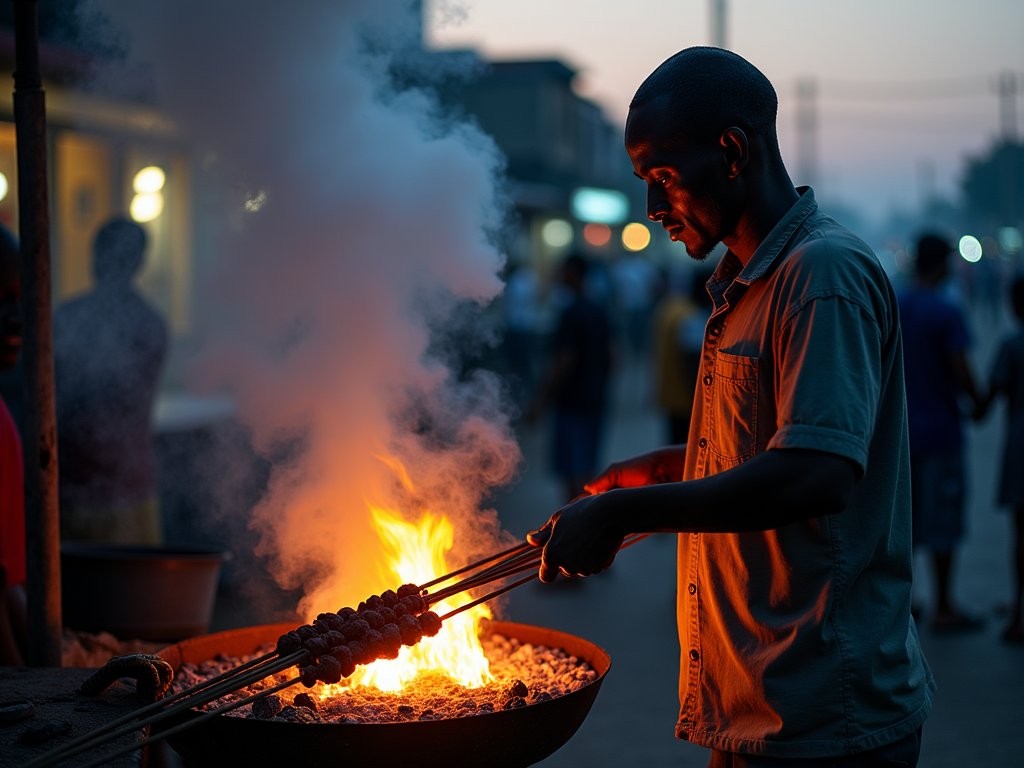
💡 Pro Tips
- Try the 'sukuma wiki' and 'nyama choma' combo at local vibandas for an authentic, budget-friendly meal
- Visit Jubilee Market food stalls in the afternoon for the freshest chapati in town
- Ask for 'pilipili' (chili sauce) on the side if you're unsure about spice levels
- Look for restaurants offering 'Samaki wa kupaka' (fish in coconut sauce)—a coastal influence worth trying
Sweet Endings: Desserts and Drinks
I'll admit it—I've got a proper sweet tooth that demands attention no matter where I travel. Kenyan desserts aren't as widely known as their savory counterparts, but Kisumu offered some delightful discoveries for those willing to look beyond the obvious.
Mandazi, which I mentioned earlier, walks the line between bread and dessert. When fresh and paired with Kenyan chai (tea with milk, ginger, and cardamom), it's a simple pleasure that I found myself craving daily. Some vendors add coconut or cardamom to the dough for variations worth hunting down.
Fruit plays a starring role in Kisumu's sweet offerings. Fresh mangoes, papaya, and pineapple are sold everywhere, often cut into convenient portions for immediate enjoyment. But the real revelation was mabuyu—baobab seeds coated in colored sugar syrup with a unique tangy-sweet flavor that's addictive. I bought a bag from a street vendor near Kisumu Museum and found myself returning for more every day.
Kashata (coconut candy with peanuts) became my go-to energy boost during long photography walks. These sweet treats are sold by women with small displays throughout the city, often homemade according to family recipes. The quality varies dramatically, so when you find a good vendor, remember their location!
On the beverage front, Kisumu offers more than just the ubiquitous sodas and beers. Fresh fruit juices are blended to order at many markets and cafes, with passion fruit, mango, and avocado being popular options. Yes, avocado—blended with milk and honey into a surprisingly delicious smoothie that's more dessert than drink.
For those interested in local alcoholic options, busaa (traditional fermented beer made from millet) provides a glimpse into pre-colonial drinking traditions. It's typically served in communal settings from large pots, though finding authentic versions can be challenging for tourists. I got lucky when my tuk-tuk driver invited me to a family gathering where busaa was flowing freely—the slightly sour, earthy flavor was unlike any beer I'd tried before.
I documented these sweet discoveries using my smartphone gimbal to capture smooth video of vendors in action. The compact size made it perfect for unobtrusive filming in markets and street scenes, while the stabilization helped overcome the bumpy walkways of Kisumu's markets.
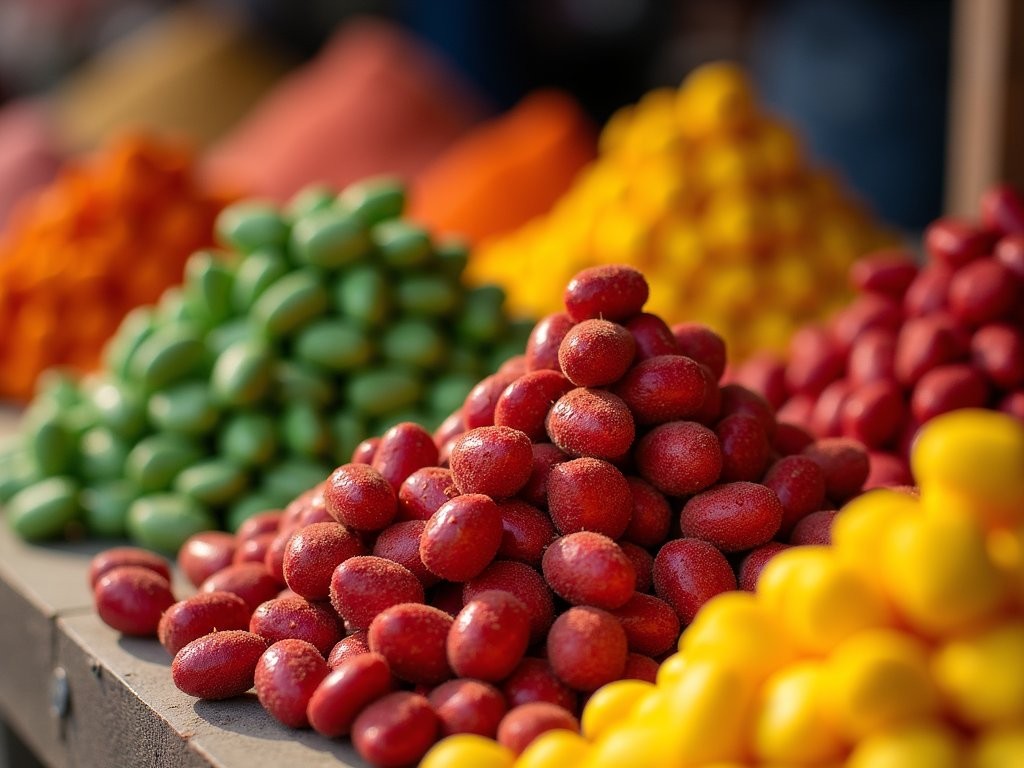
💡 Pro Tips
- Try 'vibibi' (rice flour pancakes) with honey if you spot them at breakfast stalls
- Visit Kibuye Market for the widest variety of traditional sweets and candies
- Ask for 'chai masala' rather than regular tea for a more flavorful experience
- Look for fresh sugarcane juice vendors—they often add ginger and lime for a refreshing drink
Final Thoughts
As I packed my bags to leave Kisumu, I realized my understanding of Kenyan cuisine had been transformed. What began as a curious detour between wildlife photography trips became a profound connection to Western Kenya's food heritage. The flavors of Lake Victoria—from the perfectly grilled ngege to the vibrant market produce and home-cooked traditions—have left an indelible mark on my palate and perspective.
Kisumu's food scene offers something rare in our increasingly homogenized world: authenticity that hasn't been packaged for tourist consumption. The meals I enjoyed weren't created for Instagram (though they certainly looked beautiful through my lens); they were genuine expressions of culture, geography, and history.
For budget travelers willing to venture beyond Kenya's more famous destinations, Kisumu offers a culinary adventure that's accessible, affordable, and deeply rewarding. So next time you're planning a Kenyan safari, carve out a few days for this lakeside gem. Your taste buds will thank you, your wallet won't complain, and the connections you make over shared meals might just become the highlight of your journey. Until next time, bon appétit—or as they say in Kisumu, chakula chema!
✨ Key Takeaways
- Kisumu's food scene is centered around fresh Lake Victoria fish prepared with simple techniques that highlight natural flavors
- Local markets like Kibuye offer the best introduction to regional ingredients and street food at budget-friendly prices
- Traditional Luo cuisine emphasizes indigenous vegetables and cooking methods that create depth of flavor
- The most authentic food experiences come through connections with locals rather than tourist restaurants
📋 Practical Information
Best Time to Visit
Year-round, though January-February and June-September offer drier weather for outdoor dining and market exploration
Budget Estimate
$25-40 USD per day including accommodation, meals, and transportation
Recommended Duration
4-7 days
Difficulty Level
Beginner


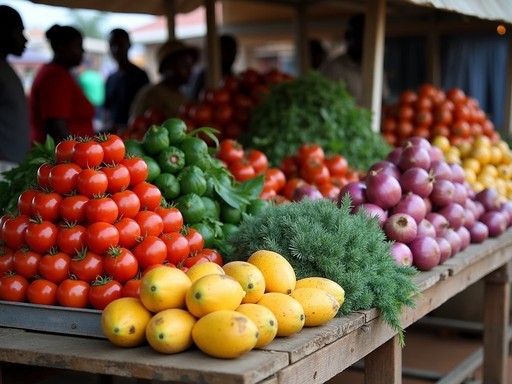
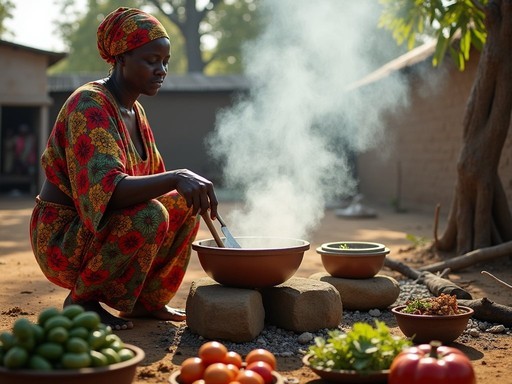

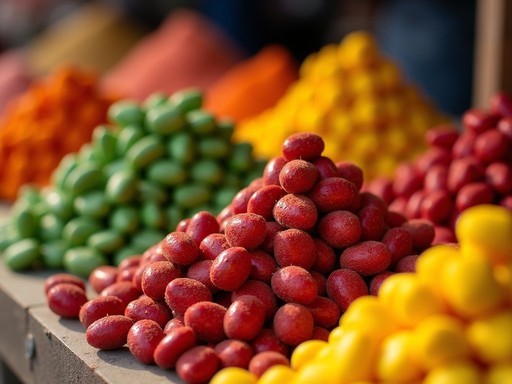




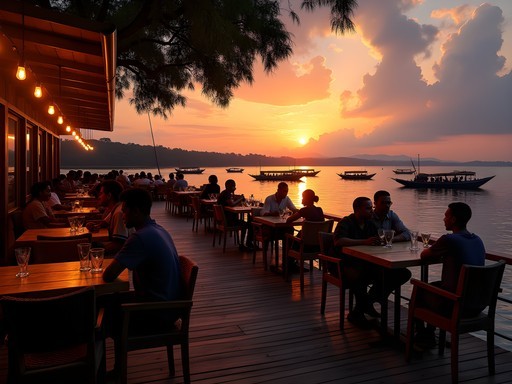
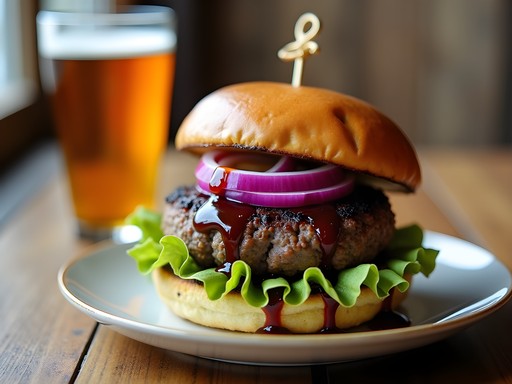
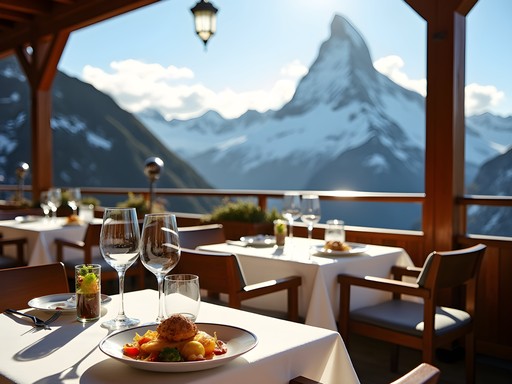
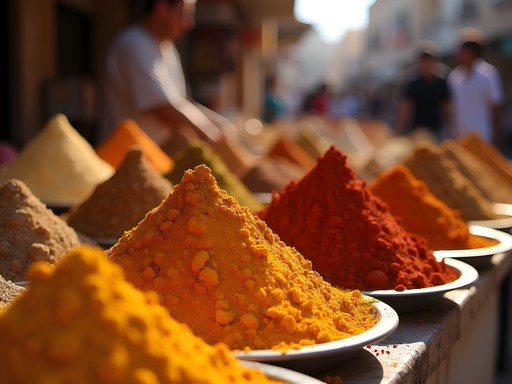
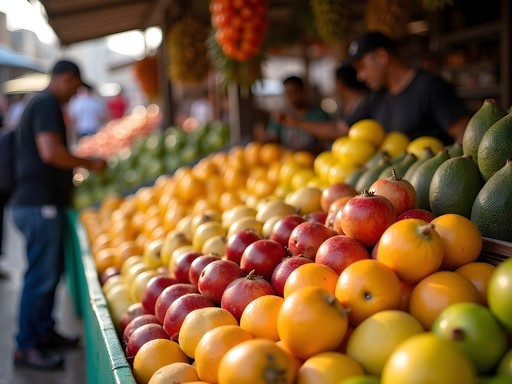
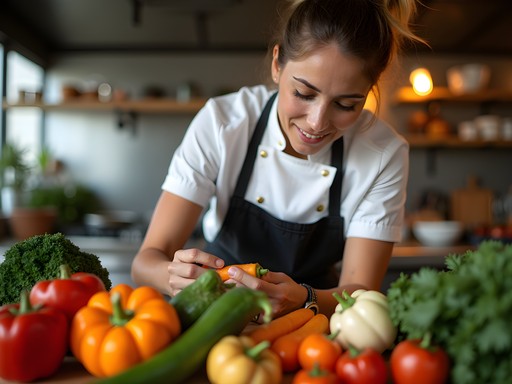
Comments
Nicole Russell
This guide brought back so many memories! I spent two weeks in Kisumu last year and completely fell in love with the food scene. The ugali with local vegetables became my go-to comfort food. One tip for anyone visiting: don't miss the breakfast experience at the local hotels where they serve mandazi (Kenyan donuts) with chai tea. The contrast of the slightly sweet fried dough with the spiced tea is perfect! Also, if you venture to Dunga Beach, there's a small family-run spot (can't remember the name) where the mama makes the most incredible omena (small fish) stew I've ever tasted. Gregory - did you try the sugarcane juice vendors? That was another highlight for me!
Gregory Olson
Yes! The sugarcane juice was a daily ritual for me - so refreshing in the heat. That small place at Dunga Beach might be Mama Oliech's spot - her omena is legendary! Glad the post brought back good memories, Nicole!
freepro
How's the transportation around Kisumu? Easy to get to those markets and lakeside spots?
Gregory Olson
Boda bodas (motorcycle taxis) are everywhere and super affordable! For longer trips, there are tuk-tuks and regular taxis. The local matatus (minibuses) are an adventure in themselves but definitely the most authentic way to get around. Most lakeside restaurants are just a short ride from downtown.
freepro
Thanks! Sounds easier than I thought. Looking forward to trying those fish dishes!
journeyfan
Those fish dishes look amazing! Adding Kisumu to my bucket list right now.
Nicole Russell
You absolutely should! I visited last year and the tilapia fresh from Lake Victoria was life-changing. Gregory isn't exaggerating about those sunset meals by the lake!
journeyfan
Any specific restaurants you'd recommend? Planning a trip for next spring!
Nicole Russell
Definitely try Dunga Hill Camp! Amazing lake views and the freshest fish. Also, don't miss the street food near Kibuye Market - the chapati there is incredible. And bring a good travel water bottle because you'll want to stay hydrated while exploring the markets!
summerqueen
Heading to Kisumu next month! Any specific restaurants you'd recommend for someone who wants authentic food but has a sensitive stomach? Also, is English widely spoken in the restaurants?
wanderguide6805
Not Gregory, but I'd recommend Tilapia Beach Restaurant - very clean, authentic, and they speak English well. Ask for fish that's well-cooked and skip the raw sides if you're worried. Kiboko Bay is also good for sensitive stomachs but still authentic!
summerqueen
Thank you so much! Adding those to my list right now.
Frank Garcia
Great post highlighting the underappreciated food scene in Western Kenya. I'd add that timing is everything for the fish markets - arriving between 11am-1pm gets you the freshest catch without the tourist crowds. The economic impact of Lake Victoria's fishing industry is fascinating; many don't realize how the declining fish stocks have changed local cuisine. Traditional recipes now incorporate more plant-based alternatives to tilapia. If you're heading back, check out the community cooking classes in Dunga - they teach sustainable fishing practices alongside traditional recipes. The data on local food systems is actually quite compelling from an economic perspective.
luckyfan6819
Just booked my tickets to Kenya and adding Kisumu to the itinerary after reading this! Can't wait to try that fish!
wanderguide6805
Your description of Kibuye Market took me right back! I spent two months in Kisumu last year on a work assignment and became addicted to those fresh mandazi with chai in the mornings. Did you try the local beer? There's a small brewery that makes a sorghum beer that's quite different from anything I've had elsewhere. The owner will give you a tour if you ask nicely. Also, don't sleep on the Indian-Kenyan fusion restaurants - there's an incredible history of cultural exchange in Kisumu's food!
Gregory Olson
I missed the brewery! That sounds amazing - definitely adding it to my list for next time. The Indian-Kenyan places were fantastic though - had some incredible biryani with local twists!
photodiver
Did you have any stomach issues eating the street food? I'm planning a trip but always nervous about that aspect.
Gregory Olson
Great question! I stuck to cooked foods and busy stalls where turnover is high. I also carried my water purifier everywhere which was a lifesaver. The only issue I had was after some raw veggies at a smaller market stall, but the street food itself was fine!
photodiver
Thanks for the honest feedback! Will definitely look for the busy stalls then.
starphotographer
That shot of the sunset over the lake with the grilled fish in the foreground is absolutely stunning! What camera do you use?
Amit Sullivan
Gregory, your post brought back wonderful memories! I spent three weeks in Kisumu back in 2019, and the tilapia grilled right at Dunga Beach was life-changing. The way they serve it with kachumbari on the side is perfect. Did you try the ugali with traditional Luo vegetables? The combination of sukuma wiki with locally grown kunde was something I still try to recreate at home in Wellington. The spice blends are impossible to match though!
Gregory Olson
Thanks Amit! Yes, I became obsessed with that ugali and sukuma wiki combo. You're right about those spice blends - completely unique. I brought some home but they never taste quite the same outside of that lakeside setting!
Amit Sullivan
Exactly! Something about eating it while watching those Kisumu sunsets makes it taste better. Did you make it to any of the small village homes for a traditional meal? That was my highlight.
Venture X
Premium card with 2X miles, $300 travel credit, Priority Pass